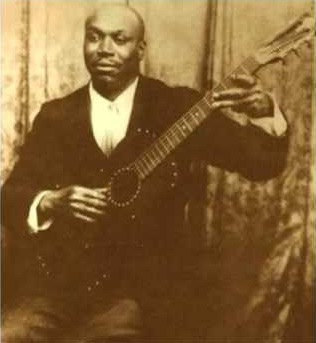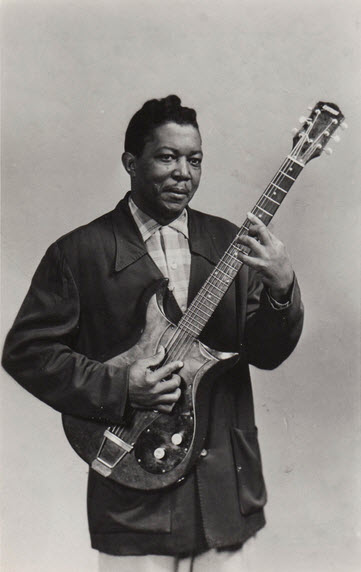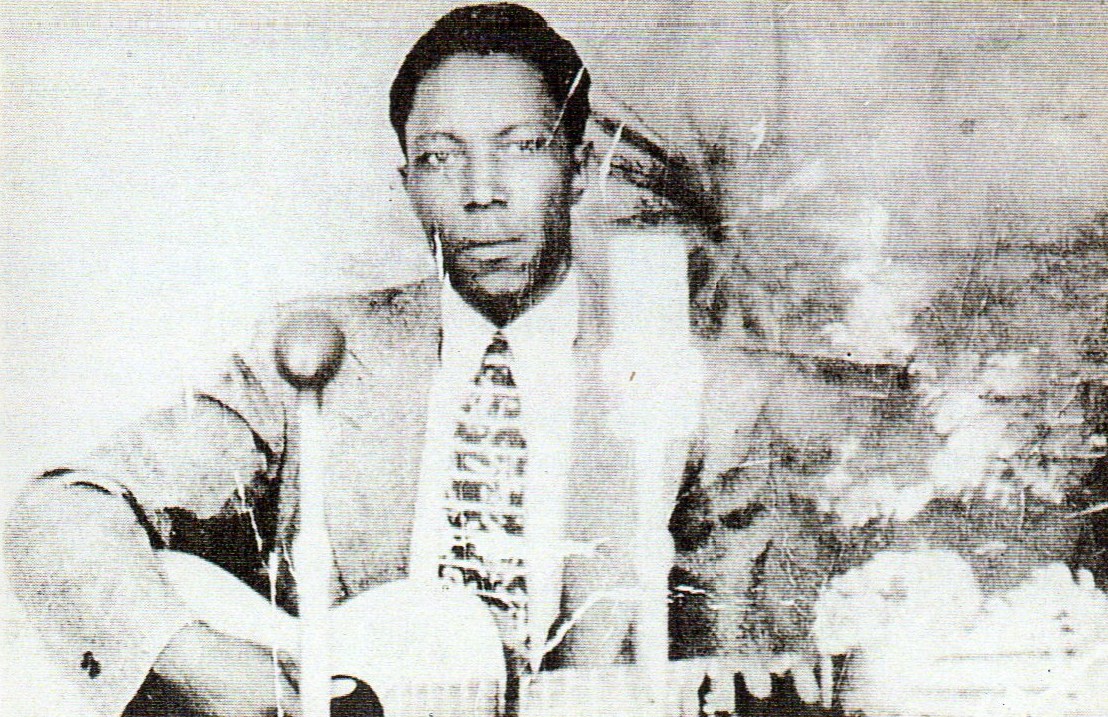<Back to Index>
- Singer, Songwriter and Guitarist Charley Jordan, 1890
- Singer, Songwriter and Guitarist Robert (Lee McCollum) Nighthawk, 1909
PAGE SPONSOR

Charley Jordan (January 1, 1890 - November 15, 1954) was a St. Louis blues singer, songwriter and guitarist, as well as a talent scout, originally from Mabelvale, Arkansas. He was known for a unique style that drew on his rural roots.
Jordan recorded numerous singles for Vocalion and Decca between 1930 and 1937, and also performed with some well regarded bluesmen from the 1920s to the 1940s. Jordan recorded with Peetie Wheatstraw, Roosevelt Sykes, Casey Bill Weldon and Memphis Minnie. He had most of his biggest hits, including "Keep It Clean", in the early to mid 1930s. Later in that decade and into the 1940s, he worked frequently with Big Joe Williams.
His most appreciated number, however, seems to have been "Keep It Clean", a selection of mildly suggestive traditional jokes strung along on the melodic thread of a blues, to which he added several sequels.
In 1928 Jordan was shot in the spine, this was due to his extra - musical career as a bootlegger. This gave him a long term disability and caused him to walk with crutches thereafter (which can be seen in the few photographs of Jordan available).
Jordan died of pneumonia in 1954 in St. Louis, Missouri.


Robert Lee McCollum (November 30, 1909 - November 5, 1967) was an American blues musician, who played and recorded under the pseudonyms Robert Lee McCoy and Robert Nighthawk.
Born in Helena, Arkansas, he left home at an early age to become a busking musician, and after a period wandering through southern Mississippi, settled for a time in Memphis, Tennessee where he played with local orchestras and musicians, such as the Memphis Jug Band. A particular influence during this period was Houston Stackhouse, from whom he learned to play slide guitar, and with whom he appeared on the radio in Jackson, Mississippi.
After further travels through Mississippi, he found it advisable to take his mother's name, and as Robert Lee McCoy moved to St. Louis, Missouri in the mid 1930s. Local musicians with whom he played included Henry Townsend, Big Joe Williams and Sonny Boy Williamson. This led to two recording dates in 1937, the four musicians recording together at the Victor Records studio in Aurora, Illinois as well as recordings under his own name, including "Prowling Night - Hawk" (recorded 5 May 1937), from which he was take his later pseudonym.
These sessions led to Chicago blues careers for the other musicians, though not, however, for McCoy, who continued his rambling life, playing and recording (for Victor / Bluebird and Decca) solo and with various musicians, under various names. He also became a familiar voice on local radio stations; then Robert Lee McCoy disappeared.
Within a few years, he resurfaced as the electric slide guitarist Robert Nighthawk, and began recording for Aristocrat and Chess Records, the latter of which was also Muddy Waters' label; in 1949 and 1950, the two men's styles were close enough that they were in competition for promotional activity; as Waters was the more marketable commodity, being more reliable and a more confident stage communicator, he received the attention. Though Nighthawk continued to perform and to record, taking up with United and States 1951 and 1952, he failed to achieve great commercial success.
In 1963, Nighthawk was rediscovered busking in Chicago and this led to further recording sessions and club dates, and to his return to Arkansas, where he appeared on the King Biscuit Time radio program on KFFA. As late as 1964, Nighthawk could be found playing on Chicago's Maxwell Street. He had a stroke followed by a heart attack, and died of heart failure at his home in Helena.
Nighthawk was honored by the Mississippi Blues Commission places a historic marker in Friars Point, Mississippi, marking his position on the Mississippi Blues Trail. Governor Haley Barbour stated the following:
This talented Mississippian made a huge contribution to development of that unique genre of music, the Mississippi blues. I am pleased Nighthawk’s imprint on the blues scene, which is still heard through the tunes of modern - day blues artists, will be recognized with his inclusion on the Mississippi Blues Trail.
The marker was placed at Friars Point, as Nighthawk called this town his home at various times during his itinerant career. He recorded a song called "Friars Point Blues" in 1940.